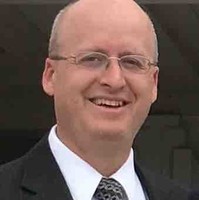
Bryan D. Maughan
- Courses1
- Reviews2
- School: University of Idaho
- Campus:
- Department: Education
- Email address: Join to see
- Phone: Join to see
-
Location:
875 Perimeter Dr
Moscow, ID - 83844 - Dates at University of Idaho: April 2015 - July 2017
- Office Hours: Join to see
Biography
University of Idaho - Education
Educator, Business entrepreneur, Author
Bryan
Maughan
Idaho Falls, Idaho
The rubber eventually hits the road and theory must prove itself viable. Theoretical mumbo-jumbo from college is a good start, but it's not the only start. Some theory is generated and tested in real-time on the factory floor. No matter where they are conceived, great ideas must be tested on the battlefield of human strengths and weaknesses.
I spent several years training/mentoring/coaching graduate students in the art becoming professional. I left academia and joined my wife who began a small business. I used that environment to see if the theories I’ve been grappling with were no more than complex sounding academic nonsense. As a graduate professor I wanted to discover ways to help high school graduates, college graduates, and relocating mid-career professionals adjust to the never ending necessity of becoming self-reliant learners and independent thinkers. The jury is still out on my test.
In theory, two key concepts I began to dig into were 1.) the ideas of protégéing and 2.) the process of becoming professional. Real protégéing requires five ingredients: a.) Independent thinking; b.) moral agency; c.) self-reliant learning; d.) smart-risk; and e.) intelligent-failure.
Protégéing is the process of becoming professional by drawing out knowledge from wise professionals. This is done by asking two kinds of questions: humble and appreciative (from David Cooperrider and Edgar Schein). Becoming is a matter of deliberate practice, but it must be the right kind of practice. The ideas I am playing with are a synthesis of research on positive psychology and gratitude. As I learn I will publish and make all sources known.
Experience
Education
Brigham Young University
B.S.
Human Development and Home and Family Science
University of Idaho
Ph.D.
Adult Education and Organizational Leadership
University of Idaho
Clinical Professor & Director: Professional EdD program; Adjunct Professor (Industrial Tech.)
Between 2011 and 2015 I was the administrator over the Professional Practices Doctoral (PPD) program. Topics I taught during coursework, and which my doctoral proteges researched include the following. ~ Human Resource Development ~ Professional Development ~ Agentic learning: heutagogy--self-determined the agentic learning ~ Risk Taking: the value of exploring options while diminishing the fear of taking risks ~ Intelligent failure ~ Andragogy: the art of teaching adults; self-directed learning. ~ Becoming professional: changes in self-understanding ~ Positive psychology ~ Knowledge Management (as it relates to mentoring) ~ Organizational Behavior I currently teach as an adjunct professor in the Industrial Technology Department.
